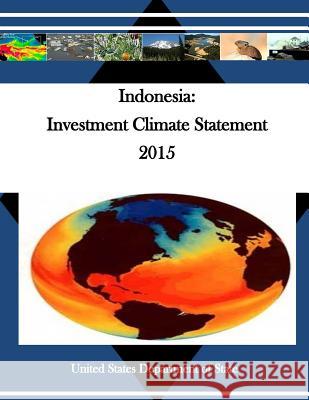Indonesia: Investment Climate Statement 2015 » książka
Indonesia: Investment Climate Statement 2015
ISBN-13: 9781530701063 / Angielski / Miękka / 2016 / 24 str.
While Indonesia's population of 245 million, growing middle class, and stable economy remain attractive to U.S. investors, investing in Indonesia remains challenging. This report focuses on challenges foreign investors face rather than the range of investment opportunities. Since October 2014, the Indonesian government under President Joko Widodo has prioritized boosting investment, including foreign investment, to support Indonesia's economic growth goals, and has committed to reducing bureaucratic barriers to investment, including announcing the creation of a "one stop shop" for permits and licenses at the Investment Coordination Board. However, factors such as a decentralized decision-making process, legal uncertainty, economic nationalism, and powerful domestic vested interests create a complex and difficult investment climate. The Indonesian government's requirements, both formal and informal, to partner with Indonesian companies and purchase goods and services locally, restrictions on some imports and exports, and pressure to make substantial, long-term investment commitments, also factor into foreign investors' plans. While the Indonesian Corruption Eradication Commission continues to investigate and prosecute high-profile corruption cases, a recent case involving the National Police has led some to question the Commission's future influence. Investors continue to cite corruption as an obstacle to pursuing opportunities in Indonesia. Other barriers include poor government coordination, the slow rate of land acquisition for infrastructure projects, poor enforcement of contracts, an uncertain regulatory environment, and lack of transparency in the development of laws and regulations. New regulations are at times difficult to decipher and often lack sufficient notice and socialization for those impacted. The lack of coordination among ministries creates redundant and slow processes, such as for securing business licenses and import permits, and at times, conflicting regulations. Indonesia restricts foreign investment in some sectors with a negative investment list. The latest version, issued in 2014, details the sectors in which foreign investment is restricted and outlines the foreign equity limits in a number of sectors. Some of the restricted sectors include: telecommunications, pharmaceuticals, e-commerce, film and creative industries, and construction. Of note, the energy and mining sector face significant investment barriers. Indonesia began to abrogate its more than 60 existing Bilateral Investment Treaty agreements (BITs) in February 2014, allowing the agreements to expire as soon as they allow. While the United States does not have a BIT with Indonesia, the Indonesian government's action reminds foreign investors of the unpredictability of Indonesia's investment climate. Despite these challenges, Indonesia continues to attract foreign investment. Private consumption is the backbone of the economy and the middle class is growing, making Indonesia a promising place for consumer product companies. Indonesia has ambitious plans to improve its infrastructure with a focus on strengthening its maritime transport corridors, which includes building roads, ports, railways and airports, as well as improving agricultural production, telecommunications, and broadband networks throughout the country. Indonesia continues to attract U.S. franchises and consumer product manufacturers. For many companies, Indonesia's investment grade rating, growing middle class, and young population make the country an attractive destination for long term investment.
Zawartość książki może nie spełniać oczekiwań – reklamacje nie obejmują treści, która mogła nie być redakcyjnie ani merytorycznie opracowana.











